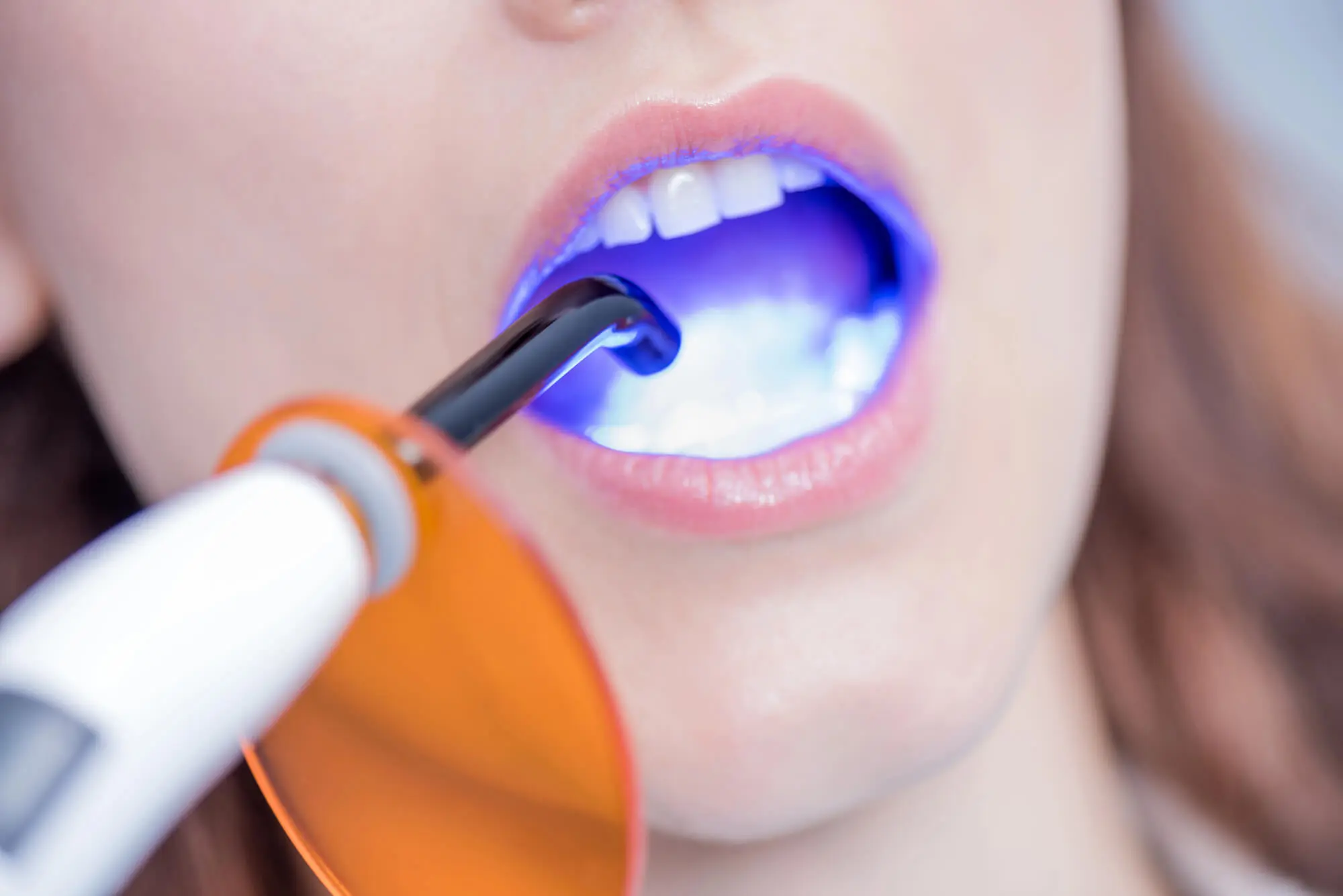
Drinking coffee, smoking, and even aging can contribute to discoloration in your smile. While stains don’t usually mean your oral health is at risk, removing them with teeth whitening in Madison can make your smile look more dashing and clean and boost your confidence.
After teeth whitening, subtle dental sensitivity is a common side effect—luckily, there are some things you can do to reduce its effects.

Why Does Teeth Whitening Cause Sensitivity?
Teeth whitening can cause sensitivity because bleaching agents interact with the tooth structure, especially the enamel and dentin.
Most whitening products, whether in-office or over-the-counter, contain hydrogen or carbamide peroxide. These chemicals penetrate the enamel to the dentin layer, breaking down stains.
However, when doing so, they can also irritate the dental nerves, particularly if your enamel is already worn down. Bleaching agents can temporarily dehydrate enamel, affecting the tooth’s natural insulating properties—thus making it more sensitive to temperature changes.
5 Ways to Manage Dental Sensitivity After Whitening
Be it professional whitening or using over-the-counter products, you can experience some degree of sensitivity in common after. Here are 5 things you can do to reduce it:
1. Use Desensitizing Toothpaste
As the name indicates, desensitizing toothpastes are a key aid in fighting dental sensitivity.
These toothpastes contain compounds like potassium nitrate or stannous fluoride that help block pain signals from the tooth surface to the nerve. For best results, you can begin using it a few days before your whitening session and continue afterward.
2. Avoid Hot or Cold Foods and Drinks
Temperature extremes tend to trigger discomfort in sensitive teeth, so it’s best to avoid them for at least 48 hours post-treatment. It’s better to avoid consuming hot beverages like coffee or tea, as they could stain your newly brightened teeth.
3. Limit Acidic Foods and Beverages
Acidic foods and beverages, such as citrus fruits, tomatoes, soda, wine, and vinegar-based products, can erode enamel and increase sensitivity after whitening because they increase the porosity of your teeth.
Limit or avoid these items for a few days after treatment to allow your enamel to remineralize and recover.
4. Apply Fluoride Gel or Rinse
Fluoride helps strengthen tooth enamel and reduce sensitivity. Your dentist may provide you with a professional-strength fluoride gel, or you can purchase an over-the-counter fluoride rinse to combat sensitivity.
These products help rebuild the enamel’s protective layer and soothe nerve endings inside the teeth.
5. Take a Break Between Whitening Sessions
If you're undergoing a series of whitening treatments—especially with at-home trays or strips—it’s important to give your teeth time to recover between sessions.
Spacing treatments by several days or weeks can help minimize sensitivity and prevent long-term damage. If you experience significant discomfort, pause the treatment and consult your dentist before continuing.

Ensure a Successful Teeth Whitening in Madison
Teeth whitening is a popular cosmetic dental procedure that dramatically enhances your smile. However, temporary tooth sensitivity is one of the most common side effects of whitening, especially with peroxide-based treatments.
While some sensitivity is common after teeth whitening, extreme discomfort is not. If you’re in pain or notice that your gums are irritated, contact Wilson Family Dental for an appointment!





%401x.svg)